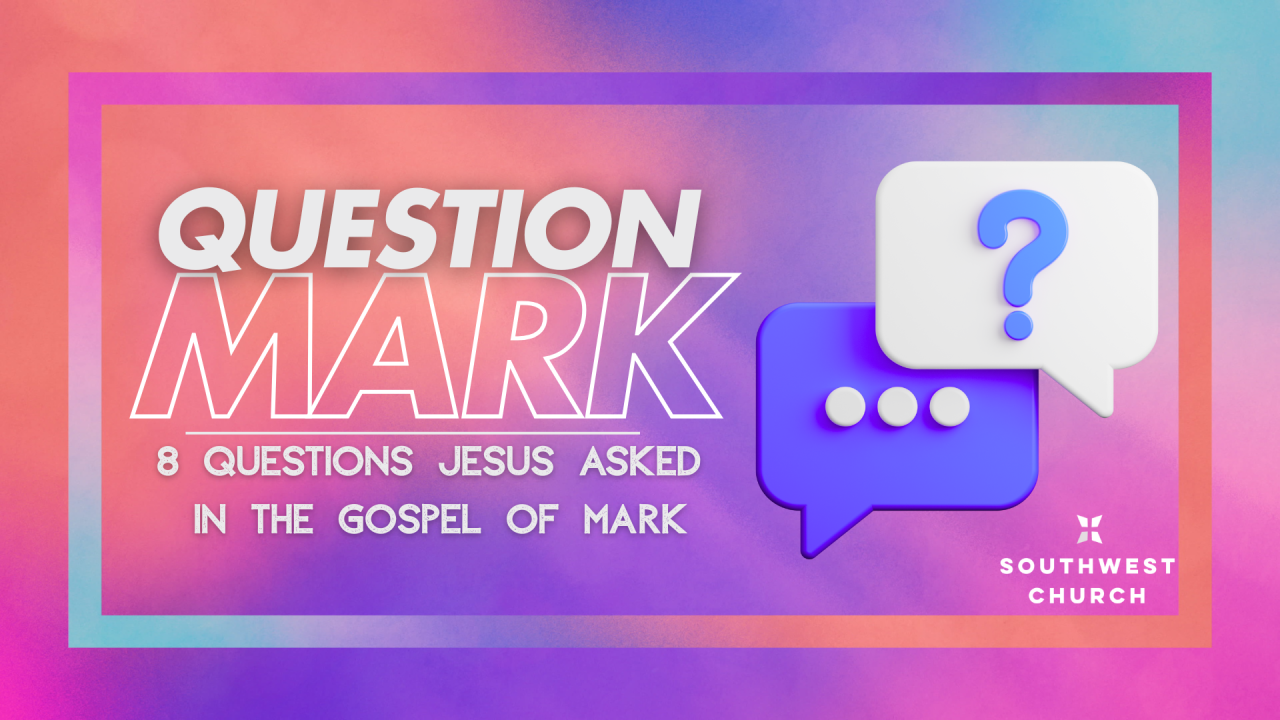Finding Faith Through Questions: Lessons from Jesus in the Gospel of Mark
When I was a kid, my Sunday school teacher did something simple but brilliant. Instead of just giving us answers, he ended each class with a question and challenged us to find the answer ourselves in the Bible—no asking parents or preachers allowed. This wasn’t just a clever way to keep us engaged; it was a powerful lesson about how true understanding often comes not from having all the answers handed to us, but from wrestling with the questions.
In our fast-paced, technology-driven world, we’re used to instant answers. Google alone answers over 47 billion questions every month, from “Who voiced the original Winnie the Pooh?” to “What happens after we die?” But when it comes to faith and the deeper questions of life, this quick-fix approach often falls short.
Jesus Himself, known as “the answer” to life’s biggest problems, didn’t always give direct answers. In fact, throughout the Gospels, He was asked about 180 questions but gave only three direct answers. Instead, Jesus asked around 370 questions, encouraging His followers—and us today—to think deeply, reflect, and engage with faith personally.
Why Questions Matter in Faith
This idea might feel uncomfortable if you’re new to faith or struggling with doubts. But consider this: questions aren’t a sign of weak faith; they’re a doorway to deeper understanding. Jesus’ method was to ask questions that challenge us to look inward, to examine our hearts, and to own our beliefs.
Over the next weeks, we’ll explore some key moments in the Gospel of Mark where questions lead to powerful encounters with Jesus. These stories show how faith isn’t just about knowing facts; it’s about trust, action, and transformation.
A Story of Unquestionable Faith
One of the most memorable stories is about four friends who carried their paralyzed friend to Jesus. The house was so packed they couldn’t get in the door, so they climbed onto the roof, made a hole, and lowered their friend down. Their faith was bold and creative.
When Jesus saw the man, instead of immediately healing his paralysis, He said, “Son, your sins are forgiven.” This shocked the religious teachers present because only God can forgive sins. But Jesus was showing something revolutionary: forgiveness isn’t about what we’ve done to earn it; it’s about who Jesus is and what He offers freely.
For anyone carrying the weight of guilt, shame, or unanswered prayers, this story offers hope. Faith is about bringing those burdens to Jesus—just like those friends brought their friend—believing that He has the power to heal and forgive.
The Question of Authority
The religious teachers questioned Jesus’ authority to forgive sins. Jesus didn’t respond with anger but with questions that revealed their hearts: “Why are you thinking these things?” and “Which is easier, to say ‘Your sins are forgiven,’ or to say, ‘Get up and walk’?”
Jesus wanted them—and us—to truly know who He is: the Son of Man with authority on earth to forgive sins. This isn’t just theological jargon; it’s an invitation to experience freedom from guilt and the paralysis that unforgiven sin can cause.
What This Means for You
If you’re new to faith, struggling with doubt, or just curious, here’s the takeaway:
- It’s okay to have questions. Faith grows stronger when you wrestle with them.
- Jesus invites you to bring your burdens, your pain, and your doubts to Him.
- Forgiveness and healing are gifts offered freely, not rewards earned.
- Knowing Jesus’ authority and love can bring freedom and hope where there was once fear and guilt.
Remember, faith isn’t about having all the answers right away. It’s about the journey of seeking, questioning, and discovering a God who loves you deeply and offers grace beyond measure.
If you’re carrying a “mat”—a burden or struggle—don’t give up. Keep bringing it to Jesus. Like those four friends, your faith and persistence can lead to life-changing encounters.

